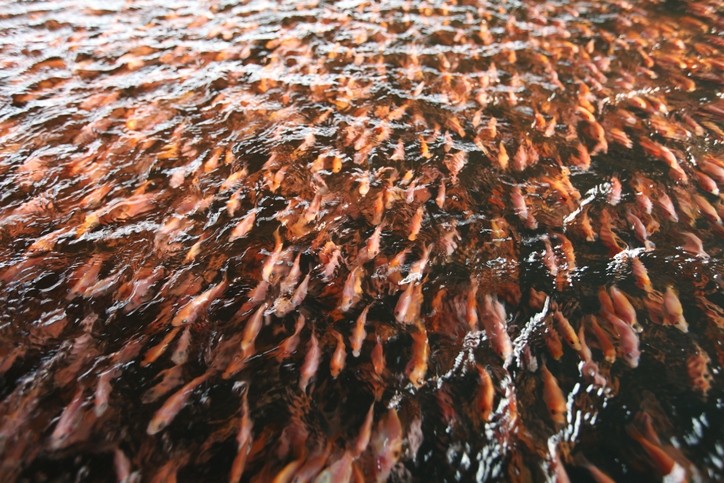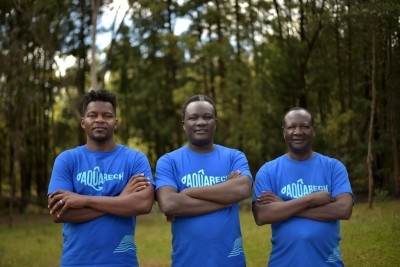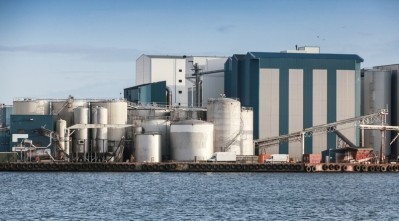Fish feed industry news round-up: Skretting develops tilapia feed, Aller Aqua starts production in the Balkans, and two fisheries move up a sustainability notch

We spoke to Mahmoud Haidar, species manager, tilapia, at Skretting to hear about the background to the development of that feed, called Optiline, and which is first being launched in Africa.
The new grower feed is part of the company's commitment to the aquaculture sector worldwide, but especially in Africa, where optimized tilapia farming is seen as an essential element in terms of feeding an expanding population on that continent up to 2050, he said.
The grower feed has already been launched in Kenya, Uganda and the Ivory Coast, and it is set to enter markets such as Egypt, Zambia and Nigeria. “The process of launching Optiline beyond Africa is also getting underway.”
Tilapia farmers want feed that delivers top performance, lower FCR and optimal growth rates, said Haidar. “Optiline is a state-of-the-art nutrition for tilapia, which replaces our existing grower feed for that species. It even more closely meets the nutritional requirements of the fish.”
Through faster growth and superior FCR, when following an optimal feeding frequency management, he said Optiline can help farmers achieve improved fillet yield while lowering production costs.
In developing the new product, the company conducted multiple internal and external digestibility and growth trials to demonstrate improved growth and feed efficiency, collaborating with research centers globally.
Haidar outlined how it also helps farmers improve the sustainability of their operations. As the new grower feed ensures a consistent digestible nutrient and energy supply specific to tilapia, there is little in the way of feed wastage, thus making it suitable for all types of tilapia farming systems from ponds to RAS, he said. “The amount of discharge in the tank, the pond or the cages is minimized given that the nutritional requirements of the tilapia are met.”
The company’s improved understanding of the digestive system of tilapia helped inform the development of the new grower feed, he stressed.
“Tilapia, due to their long gut, have high digestive capacity, meaning they eat a lot and digest quickly. At the same time, as it is a long gut, tilapia have the time to utilize, to better assimilate the carbohydrates and fibers in the feed compared to other fish species.
“Tilapia also have a low pH level in their stomach so they can digest and utilize a lot of protein from a wide variety of raw materials.
“What is interesting as well is that, due to the long gut, bacteria are present that can transform carbohydrates and fibers into volatile fatty acids (VFAs), with such VFAs serving as an energy source for tilapia.”
Tilapia production in many markets has faced more disease pressure in recent years. Most tilapia farms are open to the natural environment and are, therefore, exposed to health challenges. To address that Skretting launched Protec for tilapia in July this year; it is a new functional diet designed to support that fish species, and enhance their ability to cope during challenging situations.
“We always look at the threats faced by all the farmed fish sectors we engage in. We work closely with markets to understand their specific needs, trying to design our feed so that it supports the farmers and helps minimize health risks in farming operations in the different countries.”
Aller Aqua opens factory in the Balkans
Danish fish feed company, Aller Aqua, has opened a factory in Serbia. The plant, which is based in Secanj, close to the Romanian border, will focus on carp feed.
It is the feed producer’s seventh factory, with the company also operating in Poland, Germany, Egypt, China, and Zambia as well as in Denmark. Aller Aqua produces feeds for over 30 different fish species, but has a big focus on carp feed.
Carp production in Serbia accounts for around 85% of the country’s total aquaculture production.
CEO and owner of Aller Aqua, Hans Erik Bylling, said the company sees huge potential in Serbia and other Balkan markets.
Heading up the Aller Aqua Balkan operations is Petar Pejčić. He will be supported by the Danish HQ.
The Serbian factory is effectively up and running but an official inauguration is set for the spring, with Aller Aqua flagging up plans to further expand the premises.
The company also reported that it has just secured an export license for the new plant to enable it to trade with the EU market and CEFTA countries - Albania, Bosnia and Herzegovina, Moldova, Montenegro, North Macedonia, Serbia and Kosovo.
Two new FIPs join IFFO RS Improver Program
The IFFO RS has announced that, following extensive work, two Fishery Improvement Project (FIP) fisheries have been accepted onto its IFFO RS Improver Program (IFFO RS IP). They are:
- the Mauritanian small pelagic fishery
- and the Indian Oil Sardine fishery, for the regions of Goa and Maharashtra
The two fisheries are the first FIPs in Asia and Africa to get onto the IFFO RS Improver Program, said the organization.
The IFFO RS, said through its IP, it aims to encourage marine ingredient producing factories, which at present would be unable to meet the IFFO RS Standard, either because of a lack of fisheries management, or factory infrastructure and operational issues, to implement improvements that would allow them to eventually comply with the IFFO RS Standard.
“During the IFFO RS IP process, both FIPs will have to meet a series of time-bound improvement milestones, specific to their fishery action plans, demonstrating positive improvements within the fishery with the ultimate aim being to apply for full IFFO RS Approval once all the improvements have been implemented.”
Since October 2009, 150 plants in 19 different countries have gained IFFO RS certification and over 50% of the worlds combined production of marine ingredients is IFFO RS compliant.
Dr Sujint Thammasart, COO, Aquaculture Business, CP Foods, welcomed the shift up a gear for the Indian Oil Sardine fishery, a FIP that CP Foods has been supporting for over three years.
“This is a significant step for India towards sustainable fisheries. It will ensure stakeholders that fishmeal used in India’s seafood industry comes from responsible, traceable and transparent sources in line with CP Foods’ sustainable policy.”








